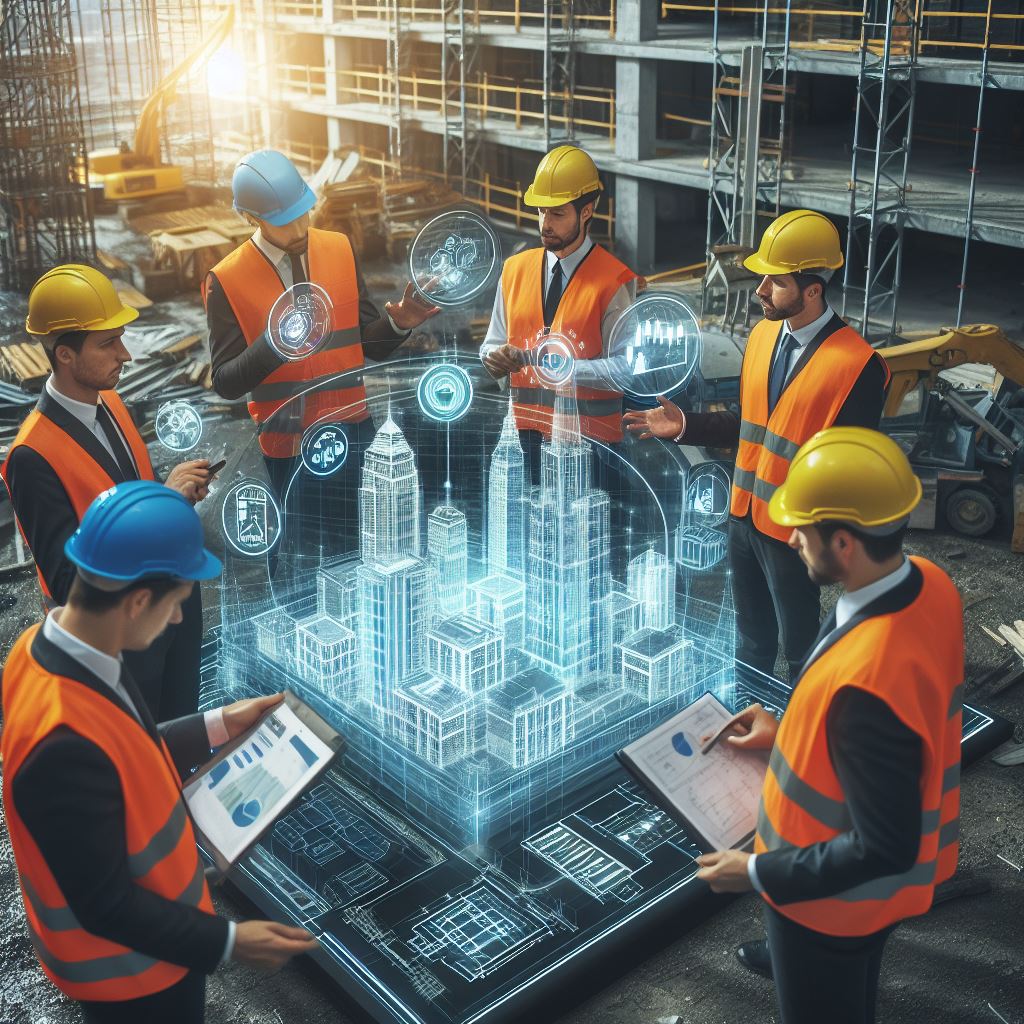Smart Construction: The Role of AI in Tomorrow’s Building Industry

Introduction
The construction sector, once known for its gradual pace of adopting new technologies, is experiencing a seismic shift due to the advent of smart construction. This progressive approach to building involves the integration of cutting-edge construction technology, fundamentally changing how projects are planned, managed, and executed. As we usher in the era of digital construction, it’s becoming clear that the role of AI in modern construction isn’t just supplementary; it’s foundational.
Definition of Smart Construction
Smart Construction is not simply the use of technology within a building process; it is a comprehensive methodology that encompasses the adoption of a new mindset, innovative practices, and digital tools to enhance the construction lifecycle. It is the intelligent use of data and automated systems to improve the outcome of construction projects. The digitalization of construction manifests in the form of Building Information Modeling (BIM), advanced project management software, and the Internet of Things (IoT) devices providing real-time insights into every aspect of the building process.
When we speak of Smart Construction, we’re referring to the integration of various AI technologies, including machine learning in construction, which allows for predictive modeling, risk assessment, and resource optimization. Automation and AI work in tandem to analyze vast amounts of data, helping make more informed decisions. Resources from industry leaders like McKinsey outlines the potential and operational efficiencies brought forth by these advancements.
Understanding Artificial Intelligence (AI) in Construction
At its essence, AI involves machines performing tasks that typically require human intelligence. In the construction industry, AI’s deployment ranges from administrative tasks like scheduling and project management to hands-on applications in the field, such as drones for site surveys and automated machinery for tasks like bricklaying or pouring concrete.
Different AI facets include machine learning, where algorithms learn from data patterns to improve their decision-making over time. Neural networks, complex structures modeled after the human brain, are used for tasks like computer vision in site monitoring. Construction robotics, from automated bulldozers to robotic arms, are remaking the landscape of the physical work involved, as detailed by companies like Komatsu.
Benefits of AI in Construction
The realization that AI can lead to a significant leap in efficiencies within the construction industry is gaining traction. According to Deloitte’s insights, AI-driven project planning can result in cost savings of up to 15% and time reduction of up to 30%. These enhancements in productivity are just the beginning. Safety is dramatically improved via AI, with technologies like predictive analytics identifying potential hazards, thereby mitigating accidents before they occur.
Precise machine operations also elevate quality, while predictive maintenance algorithms predict wear and tear on machinery, leading to improved asset management. Moreover, the accumulation and analysis of historical data can lead to better future project planning and budgeting.
Real-life Examples of AI in Construction
The practical application of AI in Construction is evident in projects like the massive infrastructural undertakings in smart cities or automated material handling on skyscraper sites. Noteworthy is the work of companies like Caterpillar, which is pioneering autonomous heavy equipment to increase efficiency on construction sites. As for future-forward projects, the aspirations for AI-fueled construction are embodied in initiatives like Singapore’s Punggol Digital District, which aims to be a hub for digital and cyber-secure businesses, with construction processes heavily reliant on AI and big data.
Challenges faced in Implementing AI in the Construction Industry
The adoption of AI within the construction industry is not without its hurdles. The inertia against technological change is a significant barrier. Large-scale investments in AI can be daunting for firms with limited budgets, and there is a palpable fear of job displacement amongst workers. Additionally, technological limitations may arise when integrating AI with older, non-digital systems, often requiring substantial process overhauls. Concerns regarding data privacy and security are also heightened as construction companies become increasingly data-centric. Expert analyses, such as those from PwC, shed light on strategies to tackle these challenges.

The Future of AI in Construction
The future is bright for AI in the construction industry. Analysts predict the continued growth of construction industry trends that favor automation and AI. Job roles are expected to evolve, with a greater emphasis on tech-savviness and data literacy. The potential for AI to augment human labor, rather than replace it, presents an exciting frontier where the focus shifts from menial tasks to creativity and strategy.
Conclusion
In conclusion, Smart Construction propelled by AI is not a passing phenomenon but a critical evolution in the building industry. As we’ve explored, the benefits and real-world applications promise a more efficient, safe, and quality-driven approach to construction. While challenges remain, the solutions lie in education, investment, and a progressive mindset. Embracing the AI revolution in construction is a call to action for industry leaders and stakeholders. It paves the way for a smarter and more sustainable future.As we stand on this technological precipice, it’s essential to recognize that AI in construction is not just about buildings; it’s about building a better world.









